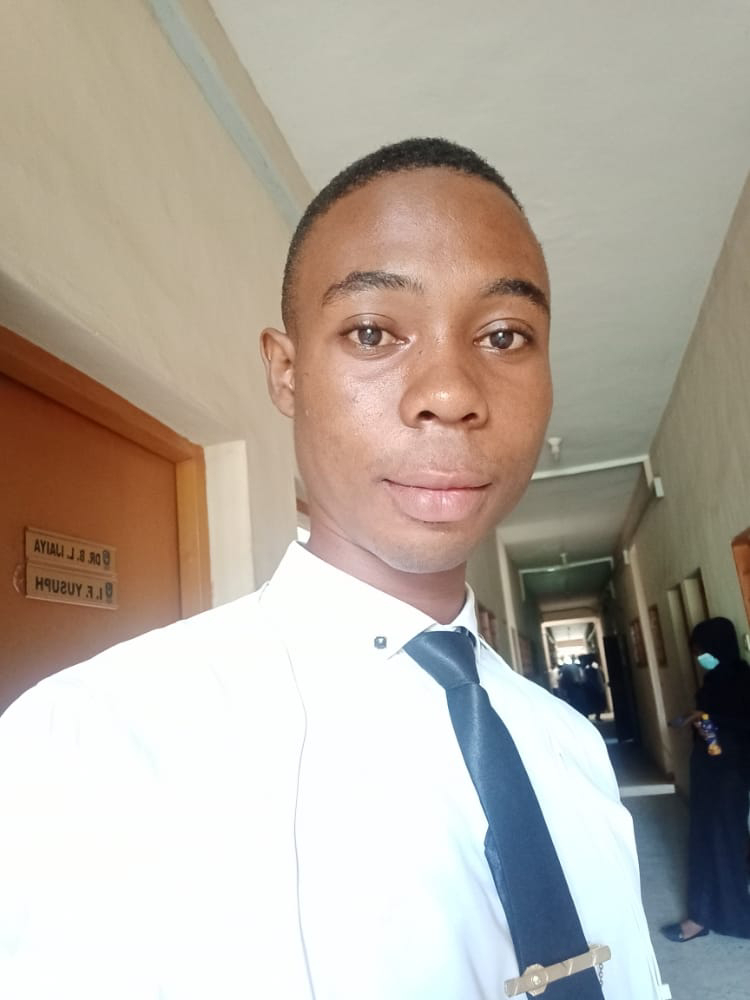124
Imagine a situation where you have a responsibility towards the community or
society to meet up with, that moment you receive and enjoy unending support from the members of the community in the course of achieving such obligation, then you feel energetic. That is because you’re empowered by the community.
You feel powerful because your contribution to the well-being of society is having a positive
impact on them. But you know that feeling when reverse is the case? You know that
feeling when no one is in support, but all against you and what you feel is an essential
obligation even if it is for the benefit of the society at large? A journalist is powerful
and powerless at the same time. You may still be wondering how…we’ll examine
how feasible that is together, now.
INTRODUCTION
Before delving into how that is possible, it’ll be trite to specify what the term
journalism is and who a journalist is. I’ll also talk summarily, about the history of media/journalism in Nigeria, the sole responsibility of journalist, afterwards, I’ll showcase how a journalist can be powerful and at the same time be powerless vis –
a-vis the challenges facing journalism generally.
WHAT IS JOURNALISM AND WHO IS A JOURNALIST?
Journalism simply mean the activity, or profession of being a journalist. Those
activities includes aggregating, writing, editing and presenting of news or news articles for widespread distribution, typically in electronic publications and broadcast news media, to inform the audience.
According to Wikipedia, journalism is the production and distribution of reports on current events based on facts and supported with proof or evidence. The word journalism applies to the
occupation, as well as collaborative media who gather and publish information based on facts and supported with proof or evidence.
A journalist, also known as a journo, on the other hand, engages in journalism, he is a writer who writes reports, articles, journals, etcetera. A journalist is one who is current about happenings in the society in order to void repetition of what has been said or done. A journalist is one who is interested in the wellbeing of the society.
That passion and zeal for the prosperity and happiness of the society is the driving force that will keep a journalist going on despite the obstacles and challenges he might face in the course of discharging his duties.
HISTORY OF JOURNALISM IN NIGERIA
Journalism or media can be traced to the colonial era in Nigeria, as far back as the 1920s with such newspapers in operation like “Lagos Daily News” founded by Herbert Macaulay, “Comet” (1925) was founded by Duse Muhammed, “Daily
Times Nigeria plc” (1925). “West African Pilot” (937), was a very popular newspaper, launched by Dr. Nnamdi Azikiwe to create awareness to Nigerians by exposing the evil and exploits of the colonial masters. This opened the eyes of Nigerians and the newspaper played a key role in the spread of racial consciousness, promotion and involvement of Nigerians in political and nationalistic activities in Nigeria. And today, we have a lot of media houses and daily newspapers that unravel news reports, articles, educative programs and many more.
THE ACTIVITIES OF A JOURNALIST
According to Prof. O. Medubi, “journalism is a very interesting subject, field and career. It is a field that makes a journalist the most powerful and the most powerless at the same time”. How so? A journalist derives his power from the support he enjoys from the society with which he can (with the information he disseminate) can build up or bring down the community. The journalist with such power can make the society or mark the society. On the other hand, journalism, as it is well known, is often referred to as the 4th realm of the estate.
The three major, statutorily recognized
estate or arms of government are the executives, the legislative and the judiciary. The 4th, important estate that doesn’t enjoy statutory backing and recognition like the aforementioned is journalism. Journalism is so vital to the existence of the society in the sense that, it is the intermediary between the government and the
governed even though it doesn’t enjoy any special or recognized protection and immunity constitutionally as the other three realms of the estate. So, we can see how the journalist is also powerless here.
Journalism brings information to society through various channels such as but not limited to Radio Stations, Television Networks, Newspapers, Internet and e-reports which can be classified under the two main media categories we have (Print Mediaand Broadcasting Media). Journalism, through these middles works towards an end, which is to build a people in a strong community or a nation that is good and comfortable for the development of everyone at large. With the high rate of insecurity in Nigeria and the whole world at large, the primary duty of a journalist is to bring information to the doorpost of the members of the society, for “whoever has the information has the power”.
CHALLENGES/OBSTACLES FACING JOURNALISM
Journalism in general faces challenges ranging from illiteracy, large population, lack of facilities, network and power supply failure, threats to their lives, to mention but a few. A report by BBC Africa “Nigeria’s ‘brown envelope’ journalism” also shows
that “Brown Envelope” journalism in Nigeria is a practice whereby monetary inducement is given to journalists to make them write a positive story or kill a negative story.
The name is derived from cash inducements hidden in brown envelopes and given to journalists during press briefings. It is a common practice in Nigeria and many journalists do know that it is unethical. One of the effects is that the Nigerian media has become a hotbed for sponsored stories. This is also a big issue. Furthermore, disseminating accurate and reliable information is also a challenge journalists face at times. According to philosophical ideologies, there’s nothing like truth in the sense that, what might be or seem to be the truth to me may
not be the truth you. One might wonder, how then will it be possible for a journalist to get to the truth?
Despite those beliefs, ideologies, and impediments, a journalist can not afford to be inconsiderate with the nature of the truth or the real fact of circumstances. Thus, the search for truth goes on as journalists always strive to get to the truth. The truth might be difficult to hold, but it’ll surely manifest itself with time. Also, according to Prof. O. Medubi, “the general society, the practice, the belief and the general opinion of the majority in the society is a yardstick, to guide a journalist at arriving at the center of the truth”.
The question now imploring for an answer is, how lengthy will it take the truth to manifest? At what cost or expense?


